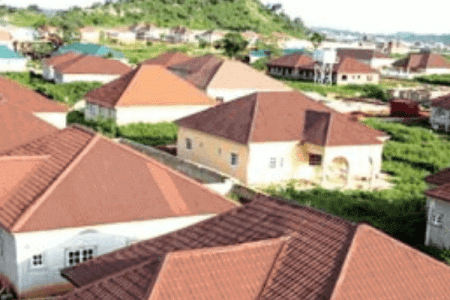Amid economic headwinds, notably Covid-19 pandemic, the Nigerian Mortgage Refinance Company (NMRC) showed resilience in 2020, growing its total assets by 17 percent to N85.4 billion, up from the 2019 balance of ₦72.9 billion.
The company raised its capital adequacy ratio from 70 percent in 2019 to 80 percent in 2020, according to its 2020 financials released at the 7th Annual General Meeting in Lagos. The 80 percent ratio is far greater than the regulatory requirement of 10 percent.
The company’s total expenses decreased by ₦0.44 billion from ₦2.32 billion in 2019 to ₦1.88 billion in 2020.
Kehinde Ogundimu, the CEO, noted at the AGM that their performance, for understandable reasons, was affected greatly by external events of the year under review. “Despite the challenges of the year, we saw a strong underlying performance across risk management and refinancing while addressing economic issues,” he noted.
He disclosed that the company was able to flat-line profits by cutting down on expenses for a decent financial outcome during the year.
Ogundimu added that the company had a positive variance on expenses which decreased by ₦0.44 billion from ₦2.32 billion in 2019 to ₦1.88 billion in 2020. But their gross earnings decreased by 4.6 percent from N9.62 billion in 2019 to N9.18 in 2020.
The CEO explained that this was due to a significant drop in the yield on investment, adding that net interest income also decreased N0.49 billion from N5.41 billion in 2019 to N4.92 billion in 2020, representing 9.1 percent decrease.
The increase in the company’s total assets, he explained, was buoyed by its series 3 bond issuance in November 2020. The N10 billion bond was part of the company’s efforts to boost liquidity in the mortgage industry and improve access to affordable homeownership.
The bond, raised from the Debt Capital Markets, was coordinated by DLM Capital Group, and was oversubscribed by a record 328 percent, according to the management of the refinance company.
The November 2020 bond issuance came under the company’s ₦440 billion Medium Term Note Programme and followed its 2018 ₦11 billion Series 2 Bond and ₦8 billionn Series 1 issued in 2015.
The company’s performance, however, had its downsides. The significant negative impact of the pandemic on the mortgage sector and the slowdown of the economy that resulted in job losses and default on mortgage obligations had considerable effect on NMRC’s investment income. This came under pressure with historic decrease in interest rates.
Charles Adeyemi Candide-Johnson, chairman of the company, noted that because of these challenges, the company’s profit before income tax decreased marginally by 1.6 percent from ₦3.09 billion in 2019 to ₦3.04 billion in 2020.
The chairman added that earnings per share decreased by 1.4 percent from ₦1.42 in 2019 to ₦1.40 in 2020. But their cost-to-income ratio improved from 42.8 percent in 2019 to 38.2 percent in 2020.
As a private sector-led company with public purpose of raising long-term funds from the capital market for mortgage refinancing, NMRC promotes affordable housing development and home ownership in Nigeria. Its core mandate is developing the primary and secondary mortgage markets.
This is why the company says the proceeds of the N10bn bond will be used to refinance existing and conforming mortgage loans, assuring that it is committed to the provision of affordable liquidity to the mortgage market by attracting long-term funding into the housing finance industry.
Ogundimu hopes that the prevailing interest rate regime will reduce the rate at which the primary mortgage institutions on-lend to their customers and, in the long-term, substantially drive a reduction in mortgage interest rates as well as translate to cost reductions in housing construction finance going forward.
He hopes further that the improvement in mortgage rates will drive efficiency and significant improvements in available options for clients who are desirous of taking advantage of prevailing lower rates.
“We will be deploying the ₦10 billion fixed-income bond, which has a seven-year tenor, towards refinancing mortgage loan portfolios of commercial and mortgage banks,” Ogundimu assures.
Source: Business Day





